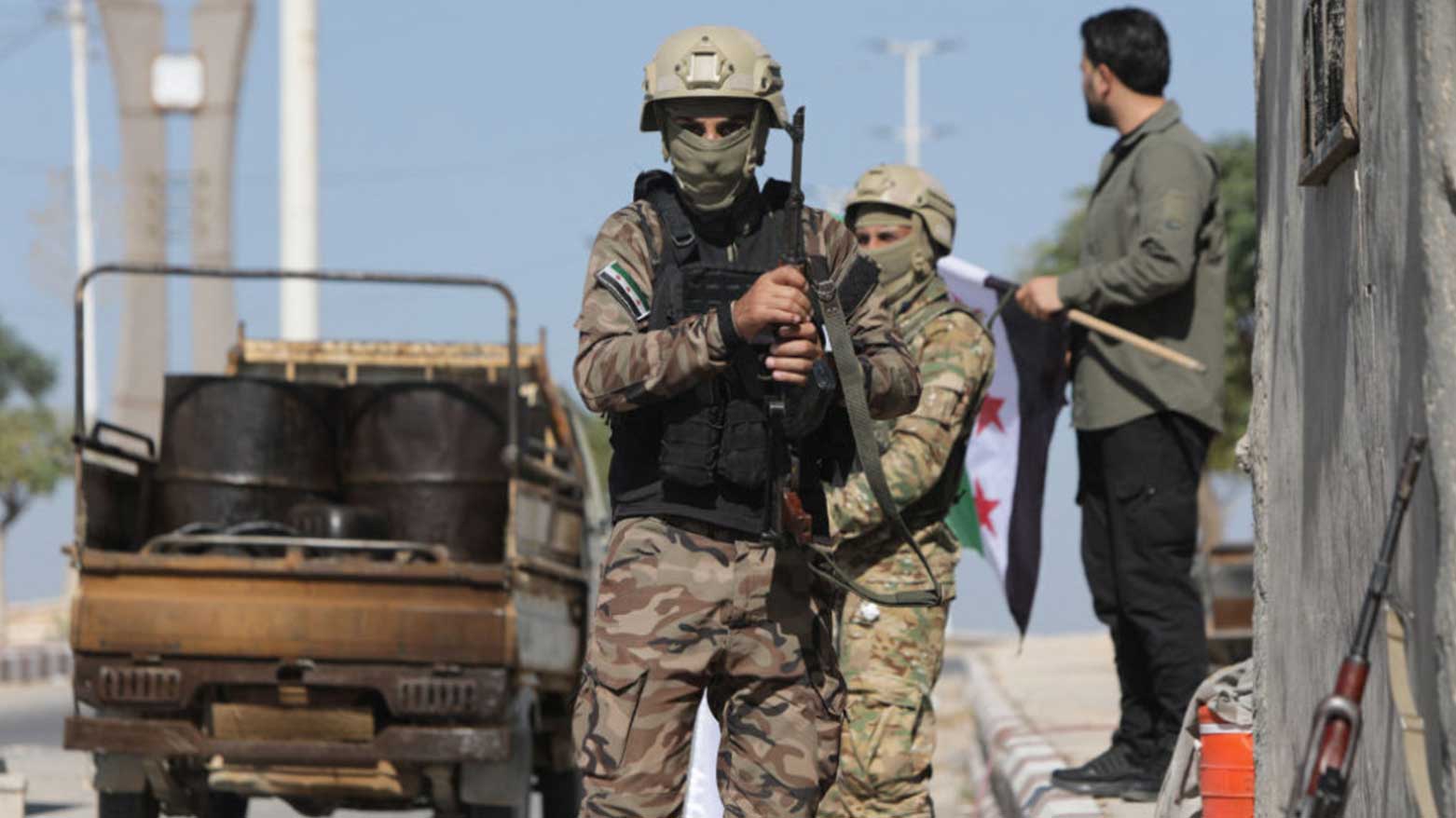Two Syrian Soldiers Killed as Clashes Erupt Between Syrian Army and SDF in Northeast Syria
SDF says it struck ISIS launch sites; Damascus accuses Kurdish fighters of “treacherous” attacks as political deal stalls.

ERBIL (Kurdistan24) — Two Syrian army soldiers were killed in overnight clashes with Kurdish-led forces in northeastern Syria, both sides confirmed Thursday, in one of the most serious confrontations since a political reconciliation framework was announced earlier this year. The incident underscored the fragility of security arrangements in the volatile Raqqa countryside, where government troops, U.S.-backed Kurdish forces, and remnants of the Islamic State (ISIS) all operate in overlapping zones of influence.
Syria’s Defense Ministry said the clashes erupted shortly after midnight, when fighters from the Syrian Democratic Forces (SDF) “launched a heavy pre-attack bombardment” on Syrian army positions in the Maadan area of Raqqa province.
The ministry, quoted by the state-run SANA news agency, reported two soldiers dead and multiple wounded, accusing the SDF of carrying out a “treacherous and recurring assault” that it claims has become “almost daily.”
Syrian forces responded with counterfire and retook several positions initially seized by the SDF, according to the ministry.
SDF: We Targeted ISIS Positions, Not the Syrian Army
The SDF, however, rejected Damascus’s account, saying its units were striking positions “directly used by ISIS members to launch drones” at SDF-held areas.
The force — which serves as the military arm of the semi-autonomous Kurdish administration in West of Kurdistan, controlling much of northern and northeastern Syria — said the region has faced a wave of ISIS-linked attacks in recent days.
According to the SDF statement, “factions affiliated with the Damascus government” had simultaneously increased pressure on SDF units while ISIS militants used nearby sites to stage attacks.
The SDF alleged “direct coordination” between certain pro-government elements and ISIS cells — a claim Damascus has repeatedly dismissed in the past.
The UK-based Syrian Observatory for Human Rights (SOHR) put the death toll of government personnel at six, though the figure could not be independently verified.
A Political Deal Under Strain
The confrontation comes months after the SDF and Syria’s new government, led by President Ahmed Shar’a, signed a landmark agreement on March 10 aimed at integrating Kurdish military and civilian institutions into a unified Syrian state structure.
The deal was hailed as a major political breakthrough following years of hostilities, and included language recognizing Kurdish rights — something SDF officials say had been ignored for a century.
But implementation has stalled amid disagreements over decentralization. The Kurdish administration insists any future Syrian state must allow regions to govern their own affairs, while Damascus has rejected federal-style models and insists on centralized authority.
Abdi: Dialogue Is the Only Path
Just one day before the clashes, SDF General Commander Mazloum Abdi addressed the Middle East Peace and Security Forum (MEPS 2025) in Duhok, in the Kurdistan Region, where he described the March 10 agreement as a “turning point” that prevented further fragmentation of Syria at a moment of intense conflict.
“This agreement stopped many potential crises,” Abdi said. “We were in the midst of a difficult war, but the deal halted the fighting and prevented governorates from being divided.”
He emphasized that for the first time, Kurdish rights were explicitly outlined within a political framework, calling it a historic shift after decades of exclusion.
Abdi reiterated his vision for a decentralized Syria, saying, “After 15 years of war, each region must manage its own affairs. This is our reality.”
The SDF commander also highlighted Kurdish communities in Aleppo and argued that longstanding disputes could be resolved peacefully “if political will exists.”
“Every war ends in dialogue,” Abdi said. “We did not seek conflict. We fought only when necessary to defend our communities. Today, dialogue is our chosen path because conflict alone cannot solve Syria’s problems.”
A Landscape of Competing Forces
The latest clashes underscore the multi-layered fragility of northeastern Syria, a region where competing security priorities, overlapping jurisdictions, and unresolved political questions create persistent flashpoints.
Even years after ISIS lost its territorial strongholds, the group continues to exploit seams between rival authorities, embedding fighters in rural pockets, staging ambushes, and using ungoverned spaces to launch drone and sabotage attacks.
The SDF, backed by U.S. forces stationed across Hasakah and parts of Deir ez-Zor, remains focused on preventing an ISIS resurgence and safeguarding the Kurdish-led administration’s autonomy.
By contrast, pro-government units deployed from Raqqa and Deir ez-Zor are attempting to reassert central authority over areas they lost during the war, often moving into zones where past agreements have never been fully implemented.
These competing missions regularly bring the two sides into friction.
Adding to this complexity, the broader region is shaped by a dense array of external pressures. Washington continues to urge both the Syrian government and the Kurdish administration to avoid actions that could fracture the fragile security architecture built during the anti-ISIS campaign.
Meanwhile, regional powers closely watch developments in the northeast, each with its own strategic calculations and concerns about Kurdish autonomy, smuggling routes, or the presence of foreign forces.
Against this backdrop, local grievances over land, governance, and past battlefield alliances remain unresolved, leaving space for miscalculation and escalation.
The result is a volatile environment where any clash — even a localized exchange — risks triggering wider consequences for the delicate political negotiations now underway between Damascus and the Kurdish leadership.